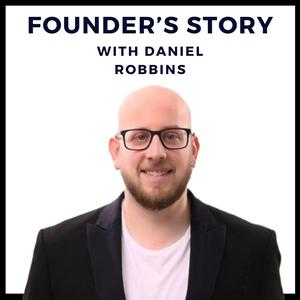Daniel Robbins interviews John Glaser about the unconventional experiences that shaped his worldview long before his career in digital health leadership. From Jesuit schooling and getting expelled to hitchhiking across continents and later teaching at Harvard, John shares how curiosity, nonconformity, and human understanding became central to both his life and leadership.
Key Discussion Points:
John shares how a rebellious streak, encouraged by an unorthodox upbringing and Jesuit teachers who taught him to question everything, led to his expulsion from high school after publishing an underground paper and refusing to apologize. He reflects on his hitchhiking journey from Alaska to Panama, describing what it taught him about poverty, prejudice, and the unexpected intelligence and richness of ordinary people. The conversation then moves into leadership, where John explains why people “give you permission” to lead them and why sociology, communication, and understanding change mattered more to him than pure technology. He also opens up about marriage, parenting, writing books for his children, and the five things he hopes he can say about his life in his final moments.
Takeaways:
A major theme in this episode is that unconventional paths can produce extraordinary leaders because they teach empathy, perspective, and comfort with uncertainty. John’s reflections show that success is not found in titles, awards, or milestones alone, but in relationships, meaning, and the daily journey of how you live. His views on leadership, love, and family are especially powerful because they come with the honesty of someone who knows balance is imperfect, but still worth pursuing with respect, communication, and humility.
Closing Thoughts:
This Founder’s Story episode feels less like a career interview and more like a life conversation with someone who has seen enough to know what actually matters. John Glaser leaves listeners with a reminder that the most interesting lives are rarely linear, and that meaning is built not through perfection, but through courage, curiosity, and deep connection with other people.
Hosted by Simplecast, an AdsWizz company. See pcm.adswizz.com for information about our collection and use of personal data for advertising.


